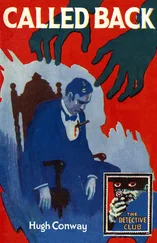Albert Edwards - Comrade Yetta
Здесь есть возможность читать онлайн «Albert Edwards - Comrade Yetta» — ознакомительный отрывок электронной книги совершенно бесплатно, а после прочтения отрывка купить полную версию. В некоторых случаях можно слушать аудио, скачать через торрент в формате fb2 и присутствует краткое содержание. Жанр: foreign_antique, foreign_prose, foreign_sf, на английском языке. Описание произведения, (предисловие) а так же отзывы посетителей доступны на портале библиотеки ЛибКат.
- Название:Comrade Yetta
- Автор:
- Жанр:
- Год:неизвестен
- ISBN:нет данных
- Рейтинг книги:4 / 5. Голосов: 1
-
Избранное:Добавить в избранное
- Отзывы:
-
Ваша оценка:
- 80
- 1
- 2
- 3
- 4
- 5
Comrade Yetta: краткое содержание, описание и аннотация
Предлагаем к чтению аннотацию, описание, краткое содержание или предисловие (зависит от того, что написал сам автор книги «Comrade Yetta»). Если вы не нашли необходимую информацию о книге — напишите в комментариях, мы постараемся отыскать её.
Comrade Yetta — читать онлайн ознакомительный отрывок
Ниже представлен текст книги, разбитый по страницам. Система сохранения места последней прочитанной страницы, позволяет с удобством читать онлайн бесплатно книгу «Comrade Yetta», без необходимости каждый раз заново искать на чём Вы остановились. Поставьте закладку, и сможете в любой момент перейти на страницу, на которой закончили чтение.
Интервал:
Закладка:
He put his face close to the spying window and looked out at Yetta's back. He wondered just where the pain had been and whether it still hurt.
"Poor little girl," he said.
But Yetta knew nothing of her boss's intention. She could see no outlet. The future stretched before her, so barren that it hurt to think of it. But she could not escape the thought. Was she to get fat and ugly like Mrs. Levy? Would the pain come again and would she slip down – as Mrs. Cohen prophesied – coughing herself to uselessness?
CHAPTER IV
LIFE CALLS
In the months that followed Rachel's departure Yetta began to lose hope. She could see no promise of escape, and lethargic time gradually faded the colors of her dream. The flame of holy discontent which had blazed for a while in her soul threatened to go out. Sometimes she wondered what had happened to Rachel. But "Speed" eats up a person's power of wondering.
Yetta had been at the machine for a long time now. Her muscles had become hardened. She did not often suffer from weariness any more, but she had, without knowing it, commenced to go downhill. The immense reserve of vitality, which is the blessing of so many of her race, was running low. It was amazing how her strong young body had resisted the strain. But any doctor would have shaken his head over the future. After all there is a limit, beyond which the nerves and muscles of a woman cannot compete with electricity and steel.
One night, a few days after the pain had come in her back, an American woman knocked at the door of the Goldstein flat while Yetta and Rosa were eating supper.
"I'm a neighbor of yours," she said. "My name is Miss Brail. I've come to get acquainted."
Mrs. Goldstein looked up hostilely from her sewing. Rosa, surly as usual, went on with her eating. But Yetta offered the intruder her chair. The visitor seemed used to such cold receptions; she sat down placidly and tried violently to establish more friendly relations.
She and some other women had rented the house across the street and were going to live there. It was to be a sort of a school. First of all they were going to start a kindergarten and day nursery for the children of women who worked. Rosa interrupted harshly that there were no children in their household. Miss Brail refused to be rebuffed. They were also going to have a sewing school for young women. Rosa, who had accepted the responsibility of the conversation, although she had not stopped eating, said that she and Yetta sewed all day long and did not need to learn.
"Well," Miss Brail continued bravely, "we will have a cooking-class too."
Rosa replied that her mother cooked for them.
"But don't you want to know how to cook yourself? Some day you'll have a home of your own, and it will be worth while to know how to cook good meals cheaply. Why, if the wife only knows how to buy scientifically and understands a little of food values, you can feed the ordinary family on only – "
But once more Rosa interrupted her. She had finished her meal and, emptying her tea-cup with a noisy sip, she stood up in her gaunt, twisted unloveliness.
"Do you think any one's going to marry me?" she asked defiantly.
Miss Brail did not have the heart to answer the question truthfully. She turned towards Yetta, who – confused by the implication of her look – hung her head and blushed. Rosa laughed scornfully.
"She ain't got no money. Nobody'd marry a girl for her looks, even if she could cook."
At this blasphemy against Romance, Miss Brail became eloquent. She was very definitely unmarried herself. But not so much an "old maid" as a new woman. It would have been impossible to picture her fondling a cat. She was almost athletic in her build, her hair was combed to hide the few streaks of gray, her eyes were young and full of fire. Her tailor-made suit was attractive; in a very modern, businesslike way, even coquettish. You could not look at her without feeling that no one was to blame but herself that she was unmarried. She delivered an impassioned harangue on the subject of men. Of course there were soulless brutes who would marry only for money. But the right sort of a man would just as soon take a poor girl as a rich one if he really loved her. She knew lots of that kind. They were going to have clubs and classes for young men in the house across the way – she called it The Neighborhood House. And once a month they would have dances. She invited Rosa and Yetta to come.
At the word "dance," Mrs. Goldstein stopped sewing, and sticking her needle in her wig, got up threateningly. No! Neither her daughter nor her niece would go to a dance. With her bony hand she pointed emphatically at the door. Miss Brail protested that the Neighborhood House dances would be eminently respectable; only the young men and women they knew personally. She tried to say that it was good to give the girls a chance to meet men in clean, orderly surroundings. But she could not resist the old woman's wrath, and at last, shrugging her shoulders in defeat, she went out.
Mr. Goldstein, when he heard of the incident, added his curses to those of his wife. Dances had been the ruin of one daughter, and that was enough disaster for a self-respecting family. Besides, these Goyim were trying to undermine the True Religion. David was hardly a religious man. But social settlements always took an interest in reform politics. Tammany Hall had small reason to be friendly with them. And as he could think of no arguments, this religious talk seemed a handy weapon.
But all her uncle's and aunt's denunciations could not persuade Yetta that Miss Brail was evil. Morning and evening, as she went out to work and came home, she stopped a moment on her doorstep to note the progress of rehabilitation in the house across the way. What the East Side calls the "parlor floor" had formerly been a store. Its great plate-glass window was cleaned and a heavy curtain was stretched across the lower half, so that people on the sidewalk could not look in. White dimity curtains were hung in the upstairs windows. The fine old front door was painted white, the rusted banister of the steps was replaced by a new and graceful one of polished steel. Before long the "residents" moved in. Their arrival coincided with the appearance of beautiful potted plants inside the windows.
Although the screen hid the front parlor from the street, it was not high enough to hide it from the windows of the Goldstein's flat. From that vantage-point Yetta learned the routine of evening work in the Settlement. A bulletin-board beside the door helped her to put names to the things she saw. On Monday nights there were meetings of "The Martha Washington Club." They were young women of her own age, and Miss Brail presided. There was generally some "uptown woman" who spoke or sang to the girls. This part of the evening's entertainment lasted until nine, then they grouped about Miss Brail at the piano and practised some choral music. They ended with half an hour's dancing and went home a little after ten. Tuesday night there was a club of boys. Wednesday night a class in sewing. Thursday night "The Abraham Lincoln Debating Club" held forth. Most of them were young men in the early twenties, but a few were older. On Friday there was a "Mothers' Club," and on Saturday night a magic-lantern show.
At last it came time for the monthly dance. Yetta had noticed the announcement on the bill-board several days before. On the eventful night she pretended to be sleepy and went to bed early, but as soon as Rosa began to snore she wrapped herself in her shawl and a blanket and tiptoed out into the front room to watch the ball. The Martha Washington Club had turned out in force, dazzlingly beautiful in their best clothes. The black-suited young men of the debating club also looked very wonderful to the hungry-eyed girl who watched it from afar. As was the strange custom of The Krists, the big window was opened although it was mid-February, and the sound of the four-piece orchestra and the laughter came up, unobstructed, to Yetta's ears.
Читать дальшеИнтервал:
Закладка:
Похожие книги на «Comrade Yetta»
Представляем Вашему вниманию похожие книги на «Comrade Yetta» списком для выбора. Мы отобрали схожую по названию и смыслу литературу в надежде предоставить читателям больше вариантов отыскать новые, интересные, ещё непрочитанные произведения.
Обсуждение, отзывы о книге «Comrade Yetta» и просто собственные мнения читателей. Оставьте ваши комментарии, напишите, что Вы думаете о произведении, его смысле или главных героях. Укажите что конкретно понравилось, а что нет, и почему Вы так считаете.












